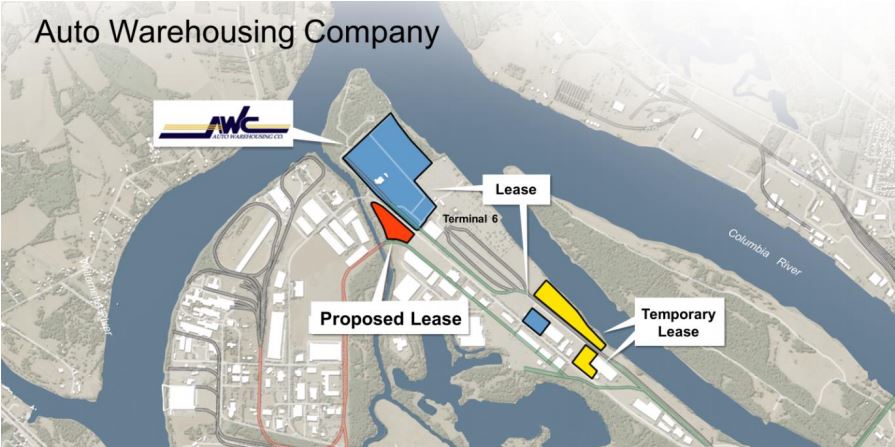
The Oregon Department of Transportation has awarded a ConnectOregon grant of $2.6 million to the Port of Portland along with tenant Auto Warehousing Co. to fund part of a $7 million expansion of auto handling facilities in the Rivergate Industrial District near Terminal 6. Plans call for AWC to develop a new 18.9-acre storage and staging yard to support the continued growth of export vehicles.
AWC leased 130 acres at Terminal 6 in 2005 and currently handles the import of Hyundai vehicles into the United States and the export of Ford vehicles manufactured in North America bound for China and Korea. Export volumes have grown steadily in the last several years, bringing the total vehicles moved by AWC to 126,000 in the last 12 months. Across the Port of Portland marine terminals, auto shipments were up 14 percent during the previous fiscal year, which ended in June.
In their regular August meeting, the Port Commission approved a lease to AWC for the expansion lot with an initial eight-year term with an additional four, 5-year options. If all options are exercised, the lease would extend to April 2045. The Port committed $871,300 to the project with the tenant providing matching funds of $3.5 million.
ConnectOregon is a lottery-bond-based grant initiative to invest in air, rail, marine, transit, and bicycle and pedestrian infrastructure to ensure a strong, diverse and efficient transportation system in Oregon. Public, private, and non-profit entities are able to apply for grants of up to 70 percent of project costs. The AWC project ranked first out of 39 approved for funding by the Oregon Transportation Commission on Friday.
“We thank the Port of Portland for their partnership in submitting the winning grant application,” said Dennis Matteo, CFO with AWC. “These improvements will help us expand our business and jobs in Portland.”
“Exports are the real success story,” says Sebastian Degens, the Port’s director of marine marketing, “not just for the Port of Portland, but for the whole American automobile industry. International export is a boost to the economy here, as well as in the heartland where the manufacturing takes place.”
Vehicle imports and exports provide local jobs for dockworkers, processors at accessorization facilities, and others employed in distribution and transportation throughout the supply chain. Each vehicle imported brings an estimated economic benefit of $278 to the region.
The Port’s auto business can be traced back to 1953 with the import of Volkswagens through Terminal 1.
